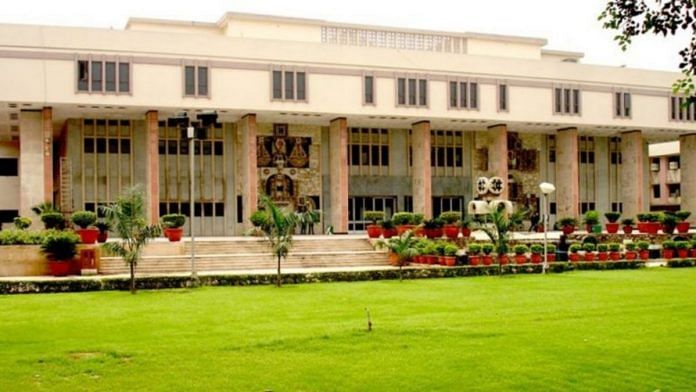New Delhi: Digital proceedings in cheque-bouncing cases will now be the norm with the Delhi High Court establishing 34 exclusive paperless courts to hear such matters registered under the Negotiable Instruments (NI) Act.
The courts have been started with the twin objective of providing a hassle-free environment to litigants — who can now appear in these courts virtually — and unclogging the legal system. These courts will permit all procedures — from filing to arguing and rendering a judgment — in digital formats.
Cases under the NI Act are filed directly before a court, unlike other criminal matters where police first register a complaint.
This is for the first time that a digital set-up has been introduced to hear and decide cases in criminal jurisdiction. There are over 3.70 lakh cheque-bouncing cases awaiting a final decision in Delhi courts.
S.S. Rathi, member secretary of the Delhi High Court’s State Court Management Systems Committee (SCMSC), told ThePrint that from 17 November, fresh e-filing of cheque-bouncing cases has become mandatory. These 34 new courts will be besides the existing ones that are already hearing similar cases, and will only hear fresh cases filed under the new framework.
However, in accordance with the standard operating procedure (SOP), original copies of documents or evidence such as the dishonoured cheque, legal demand notice, dispatch receipts and service proof will have to be submitted to the court for safe custody.
“These courts shall dispose of all fresh NI complaints filed from 17 November in a totally paperless, digital environment where hearings will take place by way of video conferencing. These courts will not hear any other case,” Rathi said.
Also read: Over one-third of judges’ posts lie vacant in 12 high courts. So much for collegiums
Lawyers to have mirror-image file
Under the guidelines for the operation of the paperless courts, a mirror image of the judge’s e-file will be maintained and also shared with the advocate as well as the litigant of the case. This shall be done through a dedicated, secure and non-transferable weblink on a drive on cloud.
Explaining it further, Rathi said: “This technology enables us to provide a mirror-image of a judge’s file to a lawyer, who now need not prepare a physical file of the case. Their file too will be updated in real time along with that of the judge.”
The new rules also have a prerequisite for lawyers to fill up a form while registering a cheque-bouncing complaint. This data collected will be utilised to create a database for application of Artificial Intelligence (AI) tools for identification, clubbing and bunching of similar cases.
The metadata will also be used for legal research aimed at expanding timely disposal of complaints, Rathi said.
Cheque-bouncing cases clog the judicial system
According to Delhi High Court data, cheque-bouncing cases constitute 42 per cent of civil and criminal cases that are pending in Delhi courts and 54 per cent of criminal cases.
The figures also reflect an increase in the filing of these cases. More than 1.15 lakh cases were filed in 2018, while the figure rose to 1.92 lakh in 2019.
“Owing to an upsurge in commercial cases and enhanced usage of cheques as mode of payment, complaints under the law came to be filed in (such) large numbers that it became impossible for the courts to handle them within a reasonable time,” noted the guidelines on digital courts issued by the Delhi High Court earlier this month.
The need to have exclusive courts arose when the remedial measures adopted by the high court to tackle the huge pendency of cheque-bouncing cases and amendments in the law, which included making cheque-bouncing offences compoundable, did not yield the desired result.
A Supreme Court judgment in 2017, proposing the use of technology to decide NI Act complaints, and the Covid pandemic gave impetus to the establishment of the much-needed new courts.
Rathi said the HC has also set-up a dedicated facilitation counter in all e-sewa kendras at district courts to facilitate filing of cheque-bouncing complaints for those who need help with digital filing.
Also read: Punjab lawyer puts wedding rituals on hold for client’s bail hearing, earns high court praise



